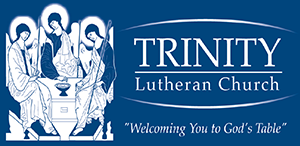When I was preparing my sermon for the Fifth Sunday of Easter (April 29), I was reading about the Ethiopian eunuch whom Philip met on the Gaza Road. You might remember that story. The Ethiopian is an outsider to the religion of Israel on two counts. He is a Gentile (non-Jew), and he is a eunuch (he has been surgically altered to be incapable of fathering children). Eunuchs were excluded worshipping in the Temple in Jerusalem. This eunuch had gone to Jerusalem to worship, but the best that he could do was stand outside the Temple. He could not even go into the “Court of Gentiles,” the outermost part of the Temple where non-Jewish people who wanted to worship the God of Israel could go. When Philip told the eunuch the goods news about Jesus the Messiah who had died and risen to make it clear that everyone was invited to be part of God’s family, the eunuch said, “Look, here is water! Is there anything to prevent me from being baptized?” I think it was a real question. The eunuch was asking Philip, “Is it really true that God’s love is for everyone, even somebody like me that had always been excluded?” Philip answered by baptizing the eunuch, and the Ethiopian “went on his way rejoicing.” The story of the Ethiopian eunuch on the Gaza Road teaches us that the gospel is for everyone. Tradition tells us that the eunuch went back to Ethiopia and shared the Good News about Jesus.
Reading about that Ethiopian reminded me of another Ethiopian eunuch mentioned in the Bible and a sermon that I had heard about him. That Ethiopian eunuch also teaches us an important lesson. In 2009, when I was at the Mobilization to End Poverty (a gathering of pastors and other leaders in faith-based organizations who were in Washington, DC to advocate for anti-poverty initiatives), I heard a sermon about Ebed-Melech. You probably never heard of Ebed-Melech, an obscure character in Jeremiah 38. Ebed-Melech was an Ethiopian who served the King of Israel, a foreigner in the land of Israel who was an official at the court. In Jeremiah 38, everyone in Jerusalem is worried that the Babylonians are going to destroy the city, and Jeremiah has angered some powerful people by prophesying that the city will indeed be captured. These powerful officials take Jeremiah and throw him into a cistern (a big hole in the ground used to store water) that had no water but only mud in the bottom. They left him there in the mud to starve to death. When the officials took Jeremiah, everyone seemed powerless to help him: “He is in your hands,” King Zedekiah answered. “The king can do nothing to oppose you” (Jeremiah 38:5). It doesn’t look good for Jeremiah or for Jerusalem.
But Ebed-Melek, an Ethiopian, an official in the royal palace, heard that they had put Jeremiah into the cistern. While the king was sitting in the Benjamin Gate,8Ebed-Melek went out of the palace and said to him, “My lord the king, these men have acted wickedly in all they have done to Jeremiah the prophet. They have thrown him into a cistern, where he will starve to death when there is no longer any bread in the city.”
Then the king commanded Ebed-Melek the Ethiopian, “Take thirty men from here with you and lift Jeremiah the prophet out of the cistern before he dies.”
King Zedekiah felt helpless, “but Ebed-Melech” did not stand by and simply watch Jeremiah die. Maybe Ebed-Melech was not simply a servant of King Zedekiah, but was more fundamentally a servant of God, the true King of Israel and the entire world. Ebed-Melech moved King Zedekiah from a place of powerlessness and hopelessness (“the king can do nothing to oppose you”) to a place where he was able to save the life of the prophet.
The problems in our world might seem too big to solve, too big for people like us to make a difference. But that simply isn’t true. We can always make a difference. Through our generosity and through our advocacy, change is coming and lives are saved. Think of the wells that have been provided through the Advent Conspiracy, the quilts that Trinity sends around the world, the part people here played in the ONE campaign, the money we have given to the Cornerstone Foundation in Rockville, the work that Gary and Lynn do in Haiti…. There are huge problems in the world with no simple answers, but things like providing clean drinking water for people and finding shelter for the homeless seem like good places to start.
The situation was desperate and hopeless, “but Ebed-Melech” made a difference. It was still a long, painful road for the people of Jerusalem and the people of Israel. It was still a painful time for Jeremiah. Ebed-Melech made a difference by speaking to the king and then doing what was right and pulling Jeremiah out of the cistern. We are Ebed-Melech. You and I are “servants of the King.” We are the servants of King Jesus who not only can speak to God in prayer on behalf of our brothers and sisters who are suffering, but we can also speak to the leaders of our country and then we can do our part to move things in the right direction. The bad news: the problems we face are enormous. The good news: there are a lot of Ebed-Melechs who have heard God’s call and are working with Him to make a difference.
